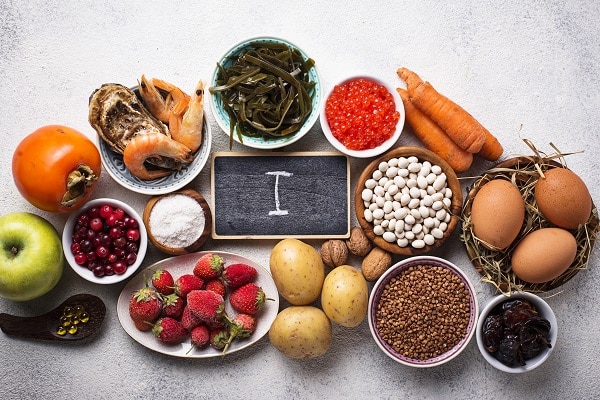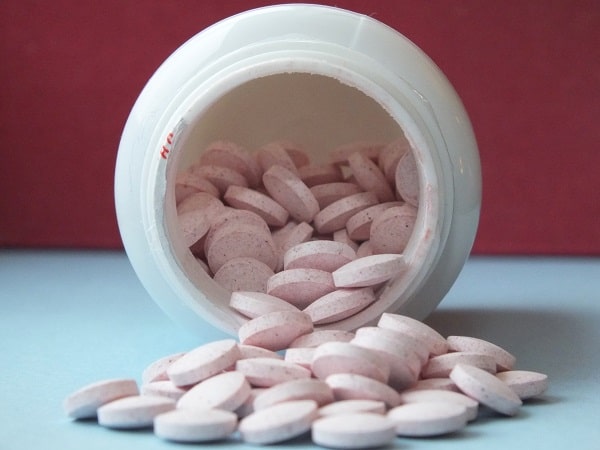Fast food has become very readily available, and because of that, people have stopped eating healthy food, and they eat fast food with little to no nutrition. When you think about it, some people hardly eat food, and the foods they eat are not nutritious. This is when deficiencies develop. Having a deficiency as a child can be more harmful because you can have those problems for life. So children should always eat healthy, nutrient-rich foods. Even if you are grown up, you must have better foods that are good for you because you can live a longer and happier life if you have all the nutrients.
Contents
Iron Deficiency

Iron is one mineral that is essential for us to live. Iron is in the body for transporting oxygen to all the cells in your body. There are two kinds of iron that your body can consume.
Heme iron is an iron that absorbs into the body well. The only source of this iron is in animal foods. Red meats have a high amount of this iron.
Non-heme Iron

Iron deficiency is prevalent, and many people do not consume enough iron. More than 25% of people have an iron deficiency. This type of iron is in plant and animal foods, but the body does not absorb non-heme iron as easily as heme iron. For example, menstruating women might lose a lot of blood, and they need to consume enough iron, but almost 30% of women are deficient in iron.
Some sources of iron are seeds, beans, green leafy vegetables, red meat, shellfish, organ meats like liver, and canned sardines. You can consume any of these foods to increase the iron in your body.
Iodine Deficiencies

Iodine is in the body to produce the thyroid hormone. The thyroid has many functions like growth, bone maintenance, and brain development. The thyroid also affects your metabolism. Many places in the world have people suffering from thyroid deficiencies. If there is less iodine in our diet, then a symptom is known as goiter, and the thyroid gland enlarges.
You might gain weight, not be able to breathe easily, and your heart rate can increase as well if you get goiter. Children might get some abnormalities, and they might suffer from mental retardation if they get goiter. Some sources of iodine are – eggs, dairy, fish, and seaweed. Some countries have passed laws that all salt has to have iodine in it. This can help prevent anyone from getting any deficiencies.
Vitamin D Deficiency

Vitamin D is fat-soluble. It acts as a steroid hormone in the body. It can reach the cells by traveling in the bloodstream, and it can tell genes to turn off or on. Most cells in your body have a receptor for vitamin D. Cholesterol in your skin takes vitamin D when your skin receives sunlight. If people stay far away from the sun away from the equator, they might have vitamin D deficiency. It can be helpful if you take Vitamin D supplements.
As people age, they are more deficient in vitamin D, and people with darker skin cannot produce as much vitamin D from the sunlight. A vitamin D deficiency takes years to surface. Even the symptoms are not very obvious. Some sources of vitamin D are cod liver oil, fatty fish, and egg yolks. If you have a deficiency in vitamin D, you can supplement or increase the amount of exposure you get from the sun because it is challenging for you to get all that vitamin D that you need from foods.
Vitamin B12 Deficiency

Vitamin B12 is a water-soluble vitamin. It is essential for your nerve and brain function and also the formation of blood. All the cells in your body need vitamin B 12 to function, but your body cannot produce this, so you should eat the right foods or take the necessary supplements because that is the only way your body can get these nutrients.
Vitamin B12 is in animal foods. You will find it in small quantities in seaweed, but you must take a supplement because most vegans and vegetarians have less vitamin B12 in their bodies. As people get older, the body does not absorb this vitamin as easily too. A lack of vitamin B12 has signs like megaloblastic anemia. In this, the red blood cells in the body get enlarged. Your brain function might take a hit, and your homocysteine levels will increase, and this can lead to many diseases. Some sources of vitamin B12 are shellfish, milk products, eggs, and meat. Even if you consume too much vitamin B12, it is not harmful because your body cannot absorb it anyway.
Calcium Deficiency

Calcium is essential for the body. Bones and teeth must be strong. Your muscles, heart, and nerves require calcium, too, because it is a signaling molecule. Calcium is present in our blood, and the excess calcium is in our bones, but when we do not have enough calcium in the body, the calcium comes out of our bones, leading to problems like osteoporosis. If children do not consume enough calcium, then they can develop problems like rickets.
Calcium is in dairy products, green vegetables, and some fish. Try your best to get calcium from foods because calcium supplements do not have a good reputation for working very well. Older women usually get osteoporosis, so they must consume enough calcium, and children need calcium to grow their bones and teeth and become stronger.
Conclusion
All the deficiencies above are common, and there are symptoms that you can look for to be aware of these deficiencies. It is best to try and consume a balanced diet and try to get all the macro and micronutrients that your body requires to function correctly. If your diet does not provide you with all the necessary nutrients, then you can choose to get some supplements to get those additional micronutrients.
Some of these micronutrients have side effects that are pretty easy to notice, but some deficiencies might not show that there is anything wrong for any years. When you realize that something is wrong, it becomes too late to do anything about it. Eat nutrient-dense foods, and you will never need to take any extra supplements or worry about deficiencies.


